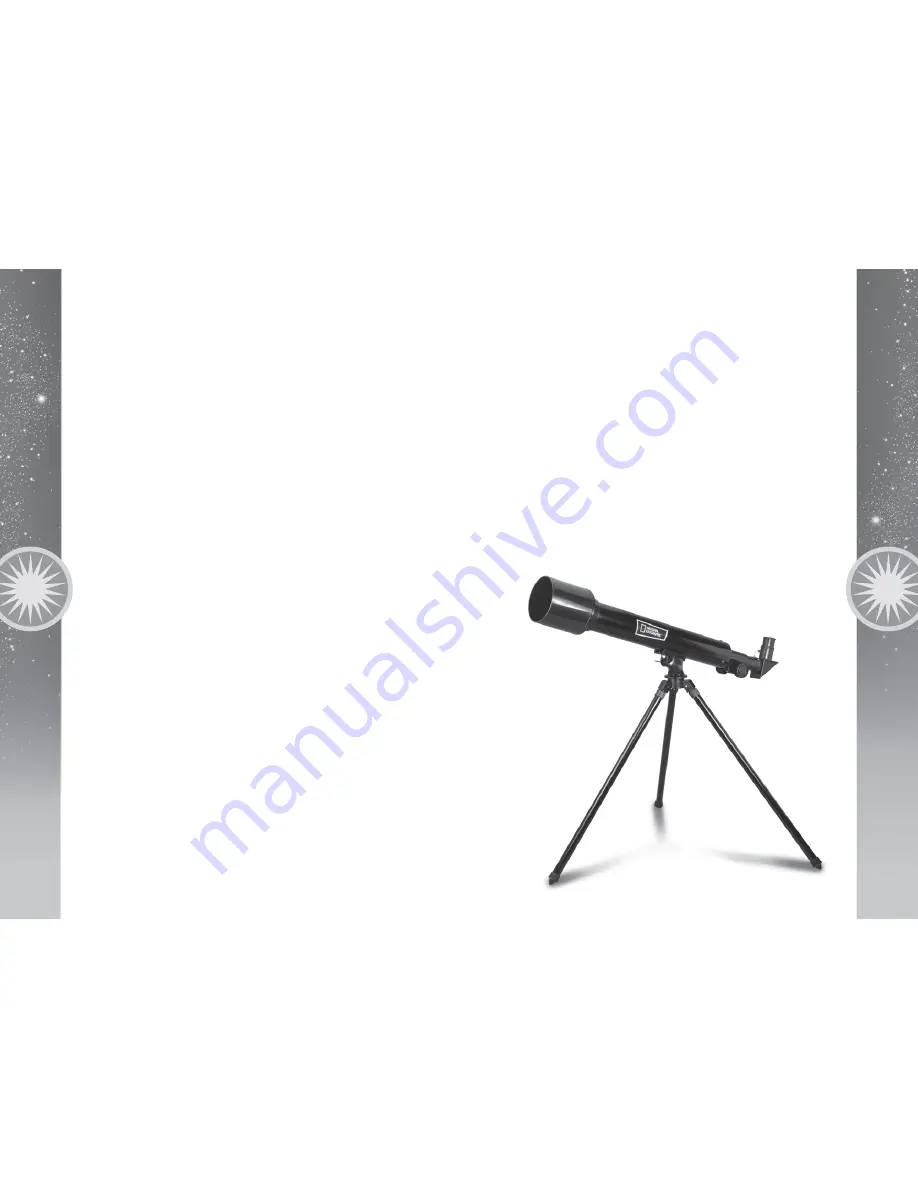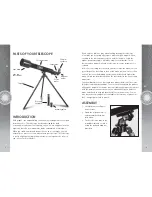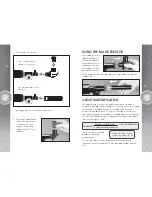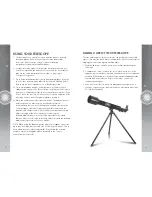
5
6
USING YOUR TELESCOPE
1. The best way to use your telescope is outside, because viewing
through windows (even if they are open) can be distorted by
reflections from the glass or by air currents (differing
temperatures) passing through a window.
2. Let your telescope adjust to the outside temperature before use.
Your telescope will work better if the lenses and the air inside the
tube are the same temperature as outside, so give it up to
30 minutes to equalise.
3. Try to find a viewing spot that is away from glaring lights. If you live
in a city, your viewing can be reduced by too much lighting, and it's
best to use the telescope where it is as dark as possible.
4) Try to avoid sudden changes of temperature, as this may cause
condensation on your lens. (For example, carrying your telescope in
from a very cold wintry outside to a very warm house interior). If this
occurs, leave the lens cap off, tilt the lens face down and wait till the
telescope reaches room temperature before storing it.
5) When you remove your telescope from its box, the diagonal mirror
and low-power 16.6 mm eyepiece are already fitted. It is
recommended that you start viewing the moon and stars with the
16.6mm eyepiece because it gives you the widest angle with the
brightest and sharpest views. Once you have completed assembly,
adjust the angle of the telescope by first releasing the
bolt and wing nut that secures the telescope tube to the tripod
bracket. Move the telescope as desired, and secure with the bolt and
wing nut, being careful not to over-tighten.
NOTE: When using the diagonal mirror, objects will appear right-side
up in your telescope, but reversed, like a reflection in a mirror. This is
normal and does not indicate a problem. When using the erecting
eyepiece, objects will appear right-side up and in the correct
orientation (not reversed).
TAKING CARE OF YOUR TELESCOPE
The lens and eyepieces in your telescope can get dirty over time, and
utmost care must be taken when cleaning them. Here are some tips for
keeping your telescope in good working order:
1. Keep the dust caps on when not in use or when transporting the
telescope.
2. Condensation can occur when the telescope is not in use. If this
happens, remove the dust caps and allow the moisture to evaporate
naturally. While doing this, keep the telescope pointing downwards
to avoid dust accumulate on. Replace the cap as soon as the
condensation has gone.
3. If the lens looks like it is dusty, try blowing away any particles. If
your lens requires more cleaning then use a moistened lens tissue
or cloth (not included).









